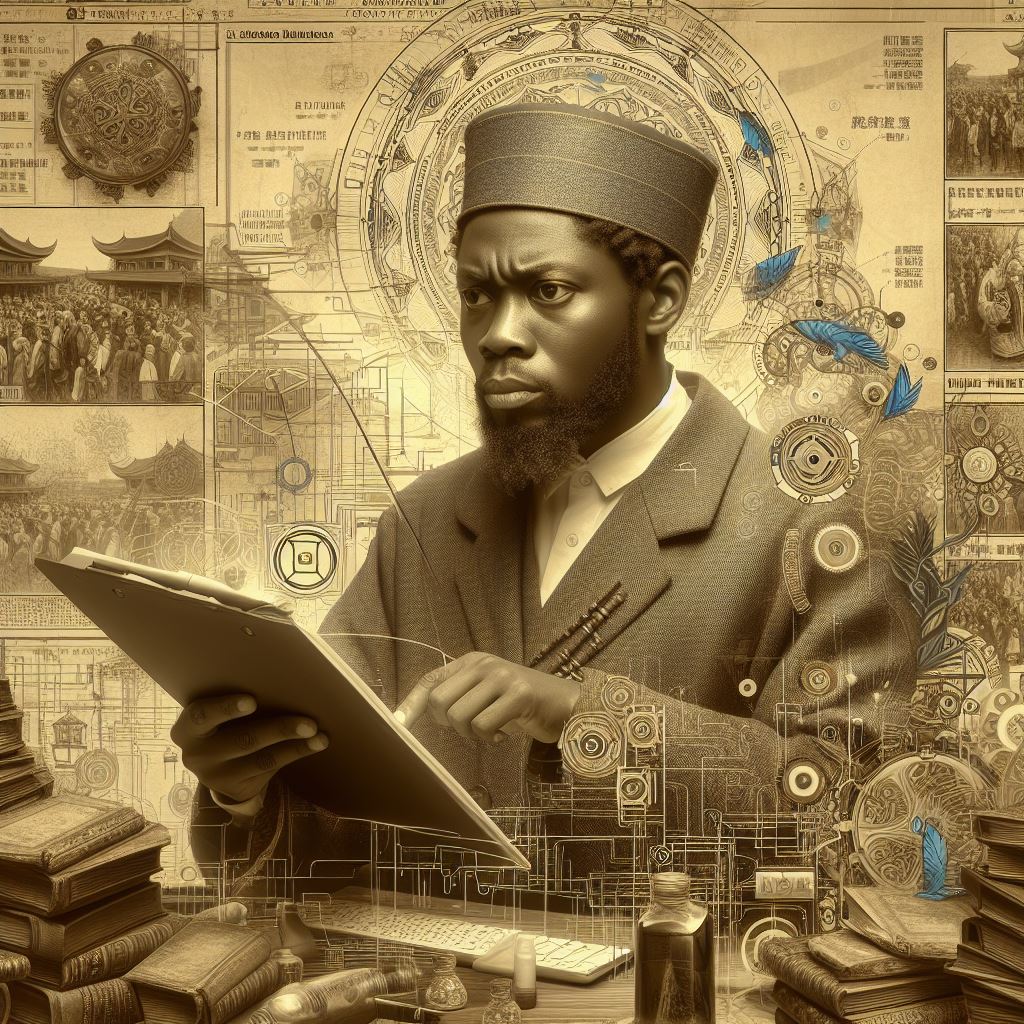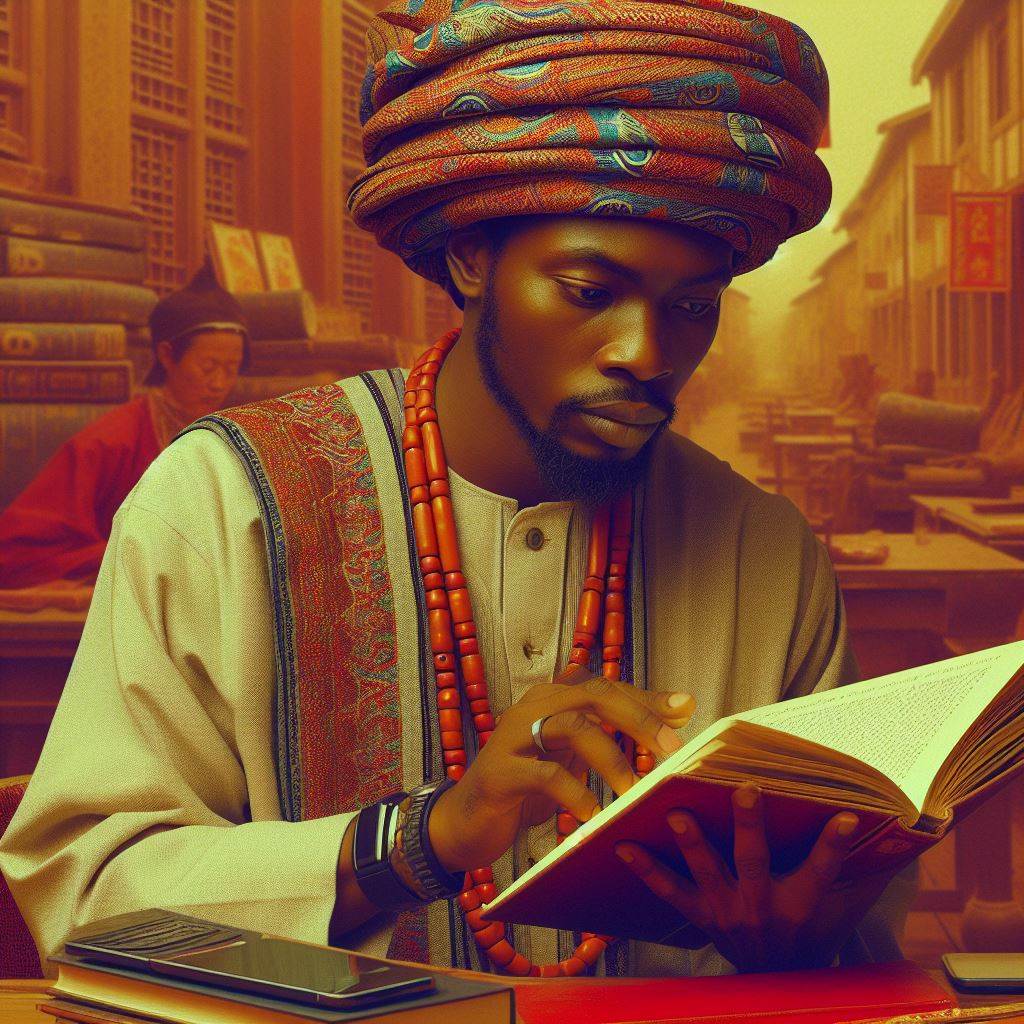Introduction
African and Asian studies stand as vibrant disciplines, offering profound insights into diverse cultures, histories, and societies. lets discuss on African and Asian Studies Key Theorists.
At the heart of these fields lie key theorists whose ideas have left indelible marks on academic discourse.
They serve as guiding lights, shaping our understanding of Africa and Asia in profound ways.
The importance of these theorists cannot be overstated.
Their contributions have paved the way for scholarly exploration, fostering a deeper appreciation of the complexities within African and Asian contexts.
In this blog post, we embark on a journey to unravel the intellectual legacies of these influential figures.
As we delve into the lives and works of key theorists, we aim to shed light on their invaluable contributions to African and Asian studies.
By examining their theories and methodologies, we gain a richer understanding of the intricate tapestries of cultures and societies in these regions.
Join us as we explore the profound impact of key theorists on the ever-evolving landscape of African and Asian studies.
Frantz Fanon
Frantz Fanon was a Martinique-born psychiatrist, philosopher, and revolutionary thinker who was influential in African and Asian studies.
Background information on Fanon
- Born in 1925 in Martinique, Fanon was heavily influenced by his experiences of racism in the French Caribbean.
- He studied psychiatry in France and eventually became involved in the Algerian war of independence against France.
- His experiences in Algeria shaped his views on colonialism, racism, and liberation struggles.
Contributions to African and Asian studies
- Fanon’s most famous work, “The Wretched of the Earth,” analyzed the psychological impact of colonization on colonized people.
- He also wrote extensively on the dehumanizing effects of racism and the need for decolonization and liberation movements.
- His insights into the politics of identity, nationalism, and violence continue to shape discourses in African and Asian studies.
Impact of his work on postcolonial theory
- Fanon’s work was instrumental in the development of postcolonial theory, which examines the legacies of colonialism in former colonies.
- His analysis of the psychological dynamics of colonialism has influenced scholars across various disciplines.
- Postcolonial theorists draw upon Fanon’s ideas to understand power dynamics, resistance, and social change in postcolonial societies.
Relevance of Fanon’s ideas today
- Fanon’s ideas on the lasting effects of colonialism remain relevant in ongoing discussions about race, power, and imperialism.
- His emphasis on the importance of decolonization and self-liberation continues to inspire anti-racist and anti-imperialist movements worldwide.
- Activists and scholars continue to engage with Fanon’s work to address contemporary issues of injustice, inequality, and resistance.
Edward Said
Background Information on Said
Edward Said, born in Jerusalem in 1935, was a Palestinian-American literary theorist, cultural critic, and political activist.
Raised in the complex socio-political landscape of Palestine, Said’s personal experiences deeply influenced his scholarly pursuits.
Educated at prestigious institutions such as Princeton and Harvard, Said’s academic background spanned literature, philosophy, and political science, providing him with a multidisciplinary perspective that would later shape his groundbreaking work.
Influence of His Work on Orientalism
His seminal work, “Orientalism,” published in 1978, revolutionized the field of African and Asian Studies.
In this influential book, Said dissected the historical and ideological underpinnings of Orientalism, a term he used to describe the Western representation of the East.
Said argued that Orientalist discourse was not a neutral pursuit of knowledge but rather a tool of colonial domination, perpetuating stereotypes and justifying imperialist agendas.
Critiques of Western Perceptions of the Orient
Said’s critique of Orientalism exposed the inherent biases and stereotypes perpetuated by Western scholars in their representations of the East.
He challenged the Eurocentric notion of the Orient as a passive, exotic “other” and highlighted the agency and diversity of Asian and African societies.
Said’s critique sparked intense debates within academia, prompting scholars to reevaluate their approaches to studying non-Western cultures and histories.
The Intersection of Culture and Politics in Asian Studies
In African and Asian Studies, Said’s ideas have profound implications for understanding the intersection of culture and politics.
His work highlighted how cultural representations are intertwined with power dynamics, shaping political discourse and policy decisions.
By exposing the political implications of Orientalist discourse, Said encouraged scholars to critically examine the relationship between knowledge production and colonialism.
Through his analysis, Said demonstrated the importance of contextualizing cultural phenomena within their socio-political contexts, enriching our understanding of African and Asian societies.
Read: How to Apply for Communication Arts Programs
Chinua Achebe
Background Information on Achebe
Chinua Achebe, born in Nigeria in 1930, was a renowned novelist, poet, professor, and critic.
Growing up in post-colonial Nigeria, Achebe witnessed firsthand the impact of colonialism on African society.
Educated at University College, Ibadan, Achebe’s early exposure to Western literature sparked his passion for storytelling.
Influence of His Novel “Things Fall Apart”
Achebe’s groundbreaking novel, “Things Fall Apart,” published in 1958, is hailed as a seminal work in African literature.
The novel depicts the tragic consequences of colonialism on Igbo society in Nigeria.
Through the protagonist, Okonkwo, Achebe explores themes of tradition, change, and the clash of cultures.
Representation of African Culture and Identity
“Things Fall Apart” is celebrated for its authentic portrayal of African culture and identity.
Achebe challenges colonial stereotypes and presents a nuanced depiction of pre-colonial African society.
By incorporating Igbo proverbs, customs, and folklore into his narrative, Achebe showcases the richness and complexity of African traditions.
Role of Achebe in Decolonizing African Literature
Achebe played a pivotal role in decolonizing African literature and reclaiming African narratives from Western perspectives.
He founded the African Writers Series to provide a platform for African writers to share their stories.
Achebe’s literary activism inspired a generation of African writers to embrace their cultural heritage and tell their own stories.
Overall, Chinua Achebe’s contributions to African literature are immeasurable.
Through “Things Fall Apart” and his other works, he challenged Western narratives, celebrated African culture, and empowered African writers.
Achebe’s legacy continues to inspire writers and scholars worldwide, reminding us of the importance of diverse voices in shaping our understanding of the world.
Read: Introduction to African and Asian Studies in Nigeria
Gayatri Chakravorty Spivak
In discussing key theorists in African and Asian studies, one cannot overlook the significant contributions of Gayatri Chakravorty Spivak.
A prominent postcolonial theorist and feminist scholar, Spivak’s work has had a lasting impact on academia and beyond.
Background information on Spivak
- Born in India in 1942, Spivak later moved to the United States where she pursued a career in academia.
- She is best known for her groundbreaking essay “Can the Subaltern Speak?” which has become a foundational text in postcolonial studies.
- Spivak’s work is characterized by its interdisciplinary approach, drawing on literary theory, philosophy, and feminist theory.
Concept of subaltern studies in Asian context
- Spivak’s concept of the subaltern focuses on giving voice to marginalized and oppressed groups, particularly in the context of postcolonial societies.
- She argues that traditional forms of knowledge production often exclude the perspectives and experiences of those at the margins of society.
- By amplifying the voices of the subaltern, Spivak seeks to challenge dominant power structures and create space for alternative narratives.
Critiques of Western feminism and postcolonial theory
- Spivak has been a vocal critic of Western feminism, particularly its tendency to prioritize the experiences of white, middle-class women.
- She argues that mainstream feminism often neglects the intersecting factors of race, class, and imperialism that shape women’s experiences globally.
- Similarly, Spivak has critiqued postcolonial theory for its limited scope and failure to adequately address issues of gender and power.
Advocacy for the voice of marginalized groups in academia
- Throughout her career, Spivak has advocated for the inclusion of marginalized perspectives in academic discourse.
- She encourages scholars to engage with and amplify the voices of those who have been historically silenced or marginalized.
- Spivak’s work serves as a call to action for academics to challenge existing power structures and create more equitable spaces for knowledge production.
In short, Gayatri Chakravorty Spivak’s contributions to Asian and postcolonial studies have been groundbreaking and influential.
Her work challenges us to interrogate dominant narratives and center the voices of the marginalized in our academic and social discourses.
Read: Famous Nigerian Alumni of Communication Arts Programs

Ngũgĩ wa Thiong’o
- Ngũgĩ wa Thiong’o is a Kenyan writer and academic born in 1938.
- He is known for his promotion of African languages in literature.
- Thiong’o has been a vocal critic of colonial education and language policies.
- His work focuses on the importance of decolonizing the mind.
- Thiong’o’s book “Decolonising the Mind” discusses the impact of colonialism on African cultures.
Background information on Thiong’o
- Ngũgĩ wa Thiong’o was born in Kamirithu, Kenya, and educated at Makerere University in Uganda.
- He later pursued his graduate studies at the University of Leeds in England.
- Thiong’o began his career as a writer in English but later switched to writing in Gikuyu, his native language.
- He was arrested in 1977 for his play “Ngaahika Ndeenda” (I Will Marry When I Want), which was critical of the Kenyan government.
- Thiong’o spent a year in prison, an experience that influenced his later work on colonialism and cultural imperialism.
Promotion of African languages in literature
- Thiong’o believes that language is an important vehicle for expressing cultural identity.
- He has been a strong advocate for the use of African languages in literature and education.
- Thiong’o argues that by using indigenous languages, African writers can reach a wider audience and preserve their cultural heritage.
- His decision to write in Gikuyu was a deliberate choice to resist linguistic imperialism and elevate African languages.
- Thiong’o’s work in indigenous languages has inspired a new generation of African writers to do the same.
Critiques of colonial education and language policies
- Thiong’o has been critical of the impact of colonial education on African societies.
- He argues that colonial education was designed to alienate Africans from their own culture and languages.
- Thiong’o believes that by imposing European languages, colonial powers sought to erase indigenous knowledge systems.
- He advocates for the decolonization of education systems to empower African languages and cultures.
- Thiong’o’s critique of colonial education has had a significant impact on academic discourse in African studies.
Influence on African cultural renaissance
- Thiong’o’s work has been instrumental in the African cultural renaissance movement.
- He has inspired African artists, writers, and intellectuals to reclaim their cultural heritage.
- Thiong’o’s emphasis on the importance of language and culture in shaping identity has resonated across the continent.
- His advocacy for the use of indigenous languages has led to a resurgence of interest in African traditional knowledge systems.
- Thiong’o’s influence extends beyond literature to broader discussions of identity, nationalism, and postcolonial politics in Africa.
Read: Digital Media Trends in Communication Arts
Aime Cesaire
As one of the key theorists in African and Asian studies, Aime Cesaire was a prominent figure in the exploration of African identity and heritage, as well as the development of the Négritude movement.
Background information on Cesaire
- Aime Cesaire was a poet, playwright, and politician from Martinique.
- He was born in 1913 and died in 2008, leaving behind a lasting legacy.
- Cesaire was a co-founder of the Négritude movement along with Leopold Sedar Senghor and Leon Damas.
Development of Négritude movement
- The Négritude movement aimed to celebrate African culture and heritage.
- It was a response to colonialism and the denigration of African identity.
- Cesaire’s poetry, particularly his work “Notebook of a Return to the Native Land,” was a cornerstone of the movement.
Exploration of African identity and heritage
- Cesaire’s work delved into the complexities of African identity and the impact of colonialism.
- He emphasized the importance of embracing one’s roots and heritage.
- This exploration of identity resonated with many in Africa and the diaspora.
Influence on black consciousness in Africa and the diaspora:
- Cesaire’s writings inspired a sense of pride and identity among black communities.
- His work laid the foundation for the Black Arts Movement in the United States.
- Cesaire’s impact extended beyond literature to influence political movements for decolonization.
Essentially, Aime Cesaire’s contributions to African and Asian studies, particularly through his exploration of African identity and heritage, have left a lasting impact on black consciousness in Africa and the diaspora.
Vandana Shiva
Dr. Vandana Shiva is an Indian scholar, environmental activist, and eco-feminist who has made significant contributions to Asian studies.
Background Information on Shiva
- Shiva was born in Dehradun, India, in 1952 and holds a Ph.D. in philosophy from the University of Western Ontario, Canada.
- She is the founder of Navdanya, a movement promoting biodiversity conservation and organic farming in India.
- Shiva has written numerous books on environment, agriculture, and globalization, highlighting the interconnections between ecology and economy.
Environmental Activism in Asian Studies
- Shiva’s work focuses on sustainable agriculture, biodiversity, and the impact of globalization on the environment in Asian countries.
- She advocates for small-scale farmers and indigenous communities who are affected by industrial agriculture and genetic engineering.
- Shiva campaigns against the corporate control of seeds and promotes seed sovereignty for farmers to preserve traditional agricultural practices.
Feminist Perspective on Social and Ecological Issues
- As an eco-feminist, Shiva examines the intersections between gender, environment, and social justice in Asian societies.
- She emphasizes the essential role of women in sustainable agriculture, natural resource management, and community development.
- Shiva challenges patriarchal norms that exploit both women and the environment, advocating for a more just and equitable society.
Leadership in Sustainable Development and Globalization
- Shiva is a prominent voice in the global discourse on sustainable development, advocating for policies that prioritize people and the planet over profits.
- She critiques the negative impacts of economic globalization on local communities, biodiversity, and traditional knowledge systems in Asia.
- Shiva calls for a shift towards localized economies, decentralized governance, and ecological sustainability to address these challenges.
Therefore, Vandana Shiva’s impactful work in environmental activism, eco-feminism, sustainable development, and globalization has shaped the discourse in Asian studies and inspired change towards a more equitable and ecologically sustainable future.
Conclusion
In reflecting on the discourse surrounding key theorists in African and Asian Studies, it becomes evident that their scholarly contributions are monumental.
Through their pioneering works and profound insights, these theorists have left indelible marks on academia, shaping the way we perceive and study cultures, histories, and societies.
The importance of their contributions to African and Asian studies cannot be overstated.
By challenging dominant narratives, offering alternative perspectives, and advocating for marginalized voices, these theorists have expanded the boundaries of knowledge and fostered a more inclusive understanding of the world.
As we navigate the complexities of global culture and history, it is imperative that we continue to engage with the ideas put forth by these influential figures.
By delving deeper into their theories, we not only gain a richer understanding of African and Asian studies but also cultivate a more nuanced appreciation for the interconnectedness of human experiences across borders.




